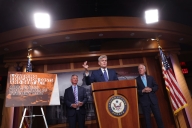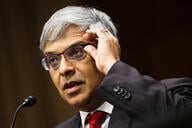You have /5 articles left.
Sign up for a free account or log in.
Illinois policy makers passed a bill yesterday that would allow student athletes in the state to profit from their name, image and likeness, the Chicago Tribune reported. The legislation passed the House 95 to 18 and the Senate 56 to 2 with overwhelming bipartisan support.
If Illinois governor J. B. Pritzker signs the bill into law, student athletes would be able to hire agents and sign endorsement deals starting in July. There are, however, some caveats to the Illinois legislation. Student athletes would not be allowed to endorse brands that could cause “embarrassment, scandal or ridicule” to their college or university or represent goods that would be “considered to be inconsistent with the values of a postsecondary institution,” such as alcohol or vaping products.
The move comes after a wave of similar state bills. Laws allowing student athletes to make endorsement deals in Alabama, Florida, Georgia, Mississippi and New Mexico are going into effect July 1, with Texas poised to join if its bill receives a signature from Texas governor Greg Abbott. California was the first to pass this kind of law in 2019, though the legislation only goes into effect in 2023.
The National Collegiate Athletic Association governing board has previously shown support for its divisions allowing college athletes to profit from their own name, image and likeness, but bylaws still prevent athletes from receiving pay to play. In January, NCAA division leaders delayed a vote on allowing student athlete endorsement deals after a letter from the U.S. Justice Department signaled concern about possible conflicts with antitrust law.
“For myself, as a former student-athlete, you see coaches making money, you see the administration is making money and the student-athletes are the ones that are filling the stands, but they’re not able to go and make any substantial monetary gains of their own likeness and image,” Napoleon Harris, a sponsoring senator, told the Chicago Tribune. “I think the colleges are now seeing the light of day and understanding the difference between student-athletes being able to use their own name and image versus being employees. They’re not considered employees, and I think that’s the difference.”





